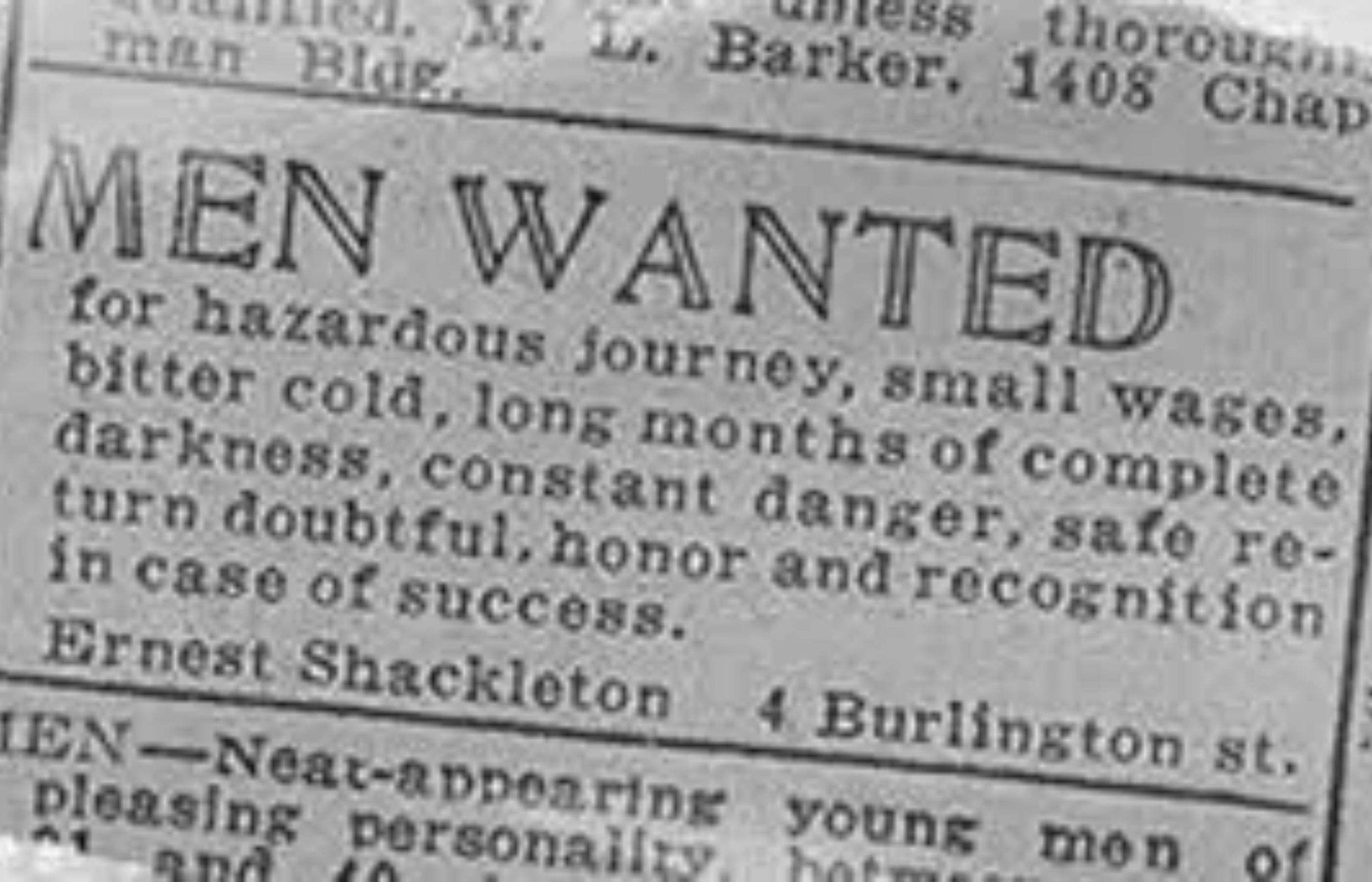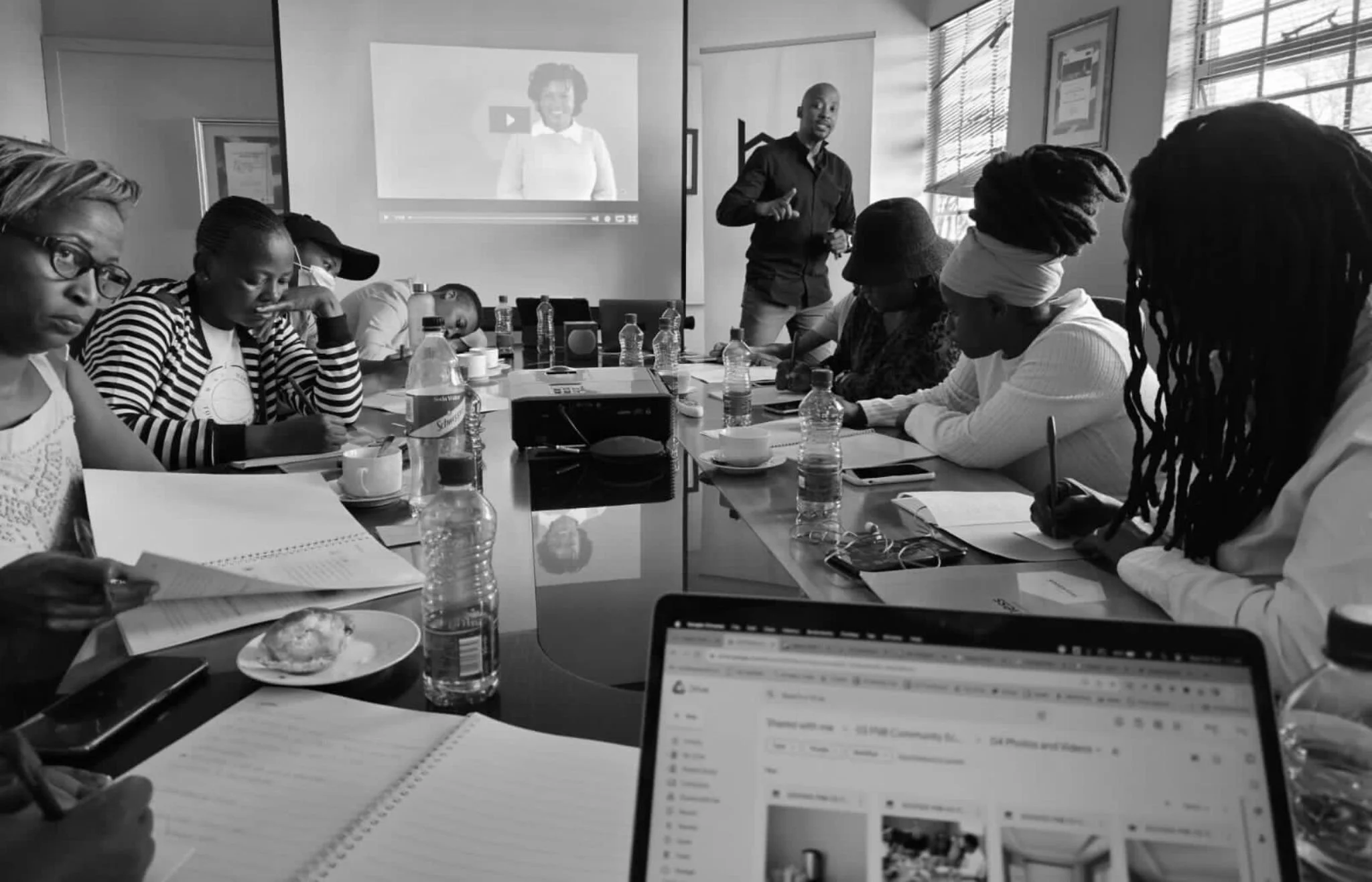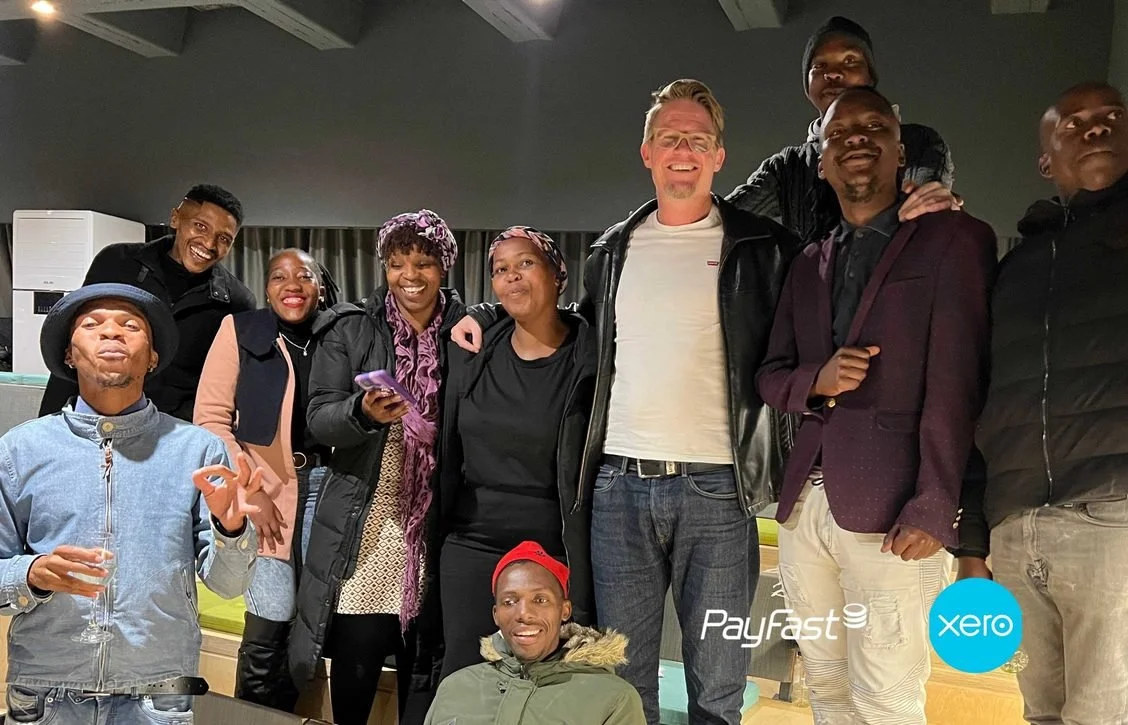The Power Of Rhythmic Discipline
In 1913, the explorer Ernest Shackleton was looking for fellow adventurers to join him in attempting the first land crossing of Antarctica over the South Pole.
In order to attract recruits, it is alleged that Shackleton ran the following advert in London newspapers:
Men wanted for hazardous journey. Low wages, bitter cold, long hours of complete darkness. Safe return doubtful. Honour and recognition in event of success.
This story was likely apocryphal but legend has it that the advert resulted in over 5,000 responses from applicants wanting to join Shackleton’s mission.
The voyage that followed remains a topic of lore.
Disaster struck Shackleton’s expedition when his ship, Endurance, became trapped in pack ice and finally sank in the Weddell Sea off Antarctica on 21 November 1915.
Shackleton’s crew escaped by camping on the sea ice until it disintegrated, then by launching the lifeboats to reach Elephant Island and ultimately South Georgia Island, a stormy ocean voyage of 720 nautical miles (1,330 km).
It was Shackleton's most famous exploit. He had failed in his mission to cross the continent but returned to Great Britain an icon. He died of a heart attack shortly afterwards.
Whenever I read this story, it makes me think of the entrepreneurial journey.
Shackleton barely escaped with his life, yet he became a national hero. He came in at number eleven in a recent poll of 100 Greatest Britons.
What is it about us that we glorify individuals such as Shackleton, Chris McCandless, Amelia Earhart, Amy Johnson, Johnny Strange - as well as countless entrepreneur antiheroes such as Sophia Amoruso, Adam Neumann, Richard Branson and Travis Kalanick?
There is something uniquely soul-stirring about embarking on a quest that is highly likely to end in death.
It is also an important reminder of our own fallibility of judgement against similar odds.
The University of Western Cape released a study last year that stated 75% of small businesses in South Africa fail within five years.
Heavy Chef’s own research, together with Xero, contrasted this by revealing that 76% of our community felt positive about their prospects in the following 12 months.
In other words:
We know our ‘safe return’ is doubtful, but we believe we can do it anyway.
What is it about our brains that tricks us into believing we can succeed against all the very obvious odds of failure?
I love reading the stories of these brave pioneers, adventurers and entrepreneurs alike. Like most people, I admire their courage and risk-taking, but I can’t help think there is an imbalance between the reality of their lives and our own projections of their heroism.
What can we do to level the see-saw and improve our own chances of success?
I mean, we’re mere mortals. The crazies I’ve mentioned above have had countless movies, articles and books created about them.
We’re crazy, but not that crazy - right?
I believe the answer lies in a certain type of discipline. The power to override our almost irresistible urges to stupid (but glorious) shit when the external environment becomes unfavourable. I call it ‘rhythmic discipline’ - or ‘rhythm n’ flow’ here at Heavy Chef central.
Compare Shackleton’s story with Stanford Business Professor Jim Collins’ account of arctic explorers Roald Amundsen and Ronald Falcon Scott in his book Great By Choice. Scott’s team perished deploying brave but dangerous tactics while the more reticent Amundsen succeeded in becoming the first person to reach the South Pole.
Collins calls Amundsen’s tactics the ‘20 Mile March’.
Amundsen was cautious and wily, and ultimately won the race by walking a disciplined twenty miles every day. He chose the right tools. He avoided over-exerting his team. He stuck to a rhythm, regardless of weather conditions or the fluctuating terrain in front of him.
Both explorers chose the same ridiculously dangerous quest. Scott deployed a dashing and courageous strategy in order to reach the South Pole first, but the odds were not in his favour.
Scott took crazy risks along the way. Scott overextended his team and made reactive decisions that put his team in peril. When he finally reached the destination, his crew was heartbroken to see Amundsen’s flag already placed in the ice.
The shrewd Amundsen had beaten him. As a result of his exhaustive tactics, Scott’s entire team died on the way back.
Jim Collins’ chapter on the twenty mile march is a highly worthwhile read. It has become a fabled business lesson and is a template for how to approach risk when we think of our strategy going forward.
2023 was challenging for many of us.
Our businesses were beset by adverse conditions. The conditions were characterised by loadshedding, economic downturns, poor governance and market unpredictability.
The next twelve months looks set to be no less challenging. It’s an election year here in South Africa. There are international crises looming across the globe. Inflation is out of control. Confidence in SA is at a record low.
With all these factors in mind, what can we do differently in 2024?
How can we mitigate the risks?
What ’twenty mile march’ can we deploy in creating predictability amongst all the inevitable chaos we will face?
How can we prevent becoming a romantic story about a shipwreck at the bottom of the sea?
How can we behave like Amundsen, and not like Scott?
I suggest that, in 2024, let’s band together as entrepreneurs and support each other in our quests. Instead of crazy risks, let’s be smart about how we move forward.
Let’s choose the right rhythms. Let’s be disciplined.
Also: Let’s hold each other accountable to our unique rhythmic disciplines.
Let’s not avoid risks, but choose how to mitigate them by playing to our strengths.
I hope to see you soon, preferably at an upcoming gathering in Cape Town, Johannesburg or now (woooop!) Durban.
As always,
Peace -







